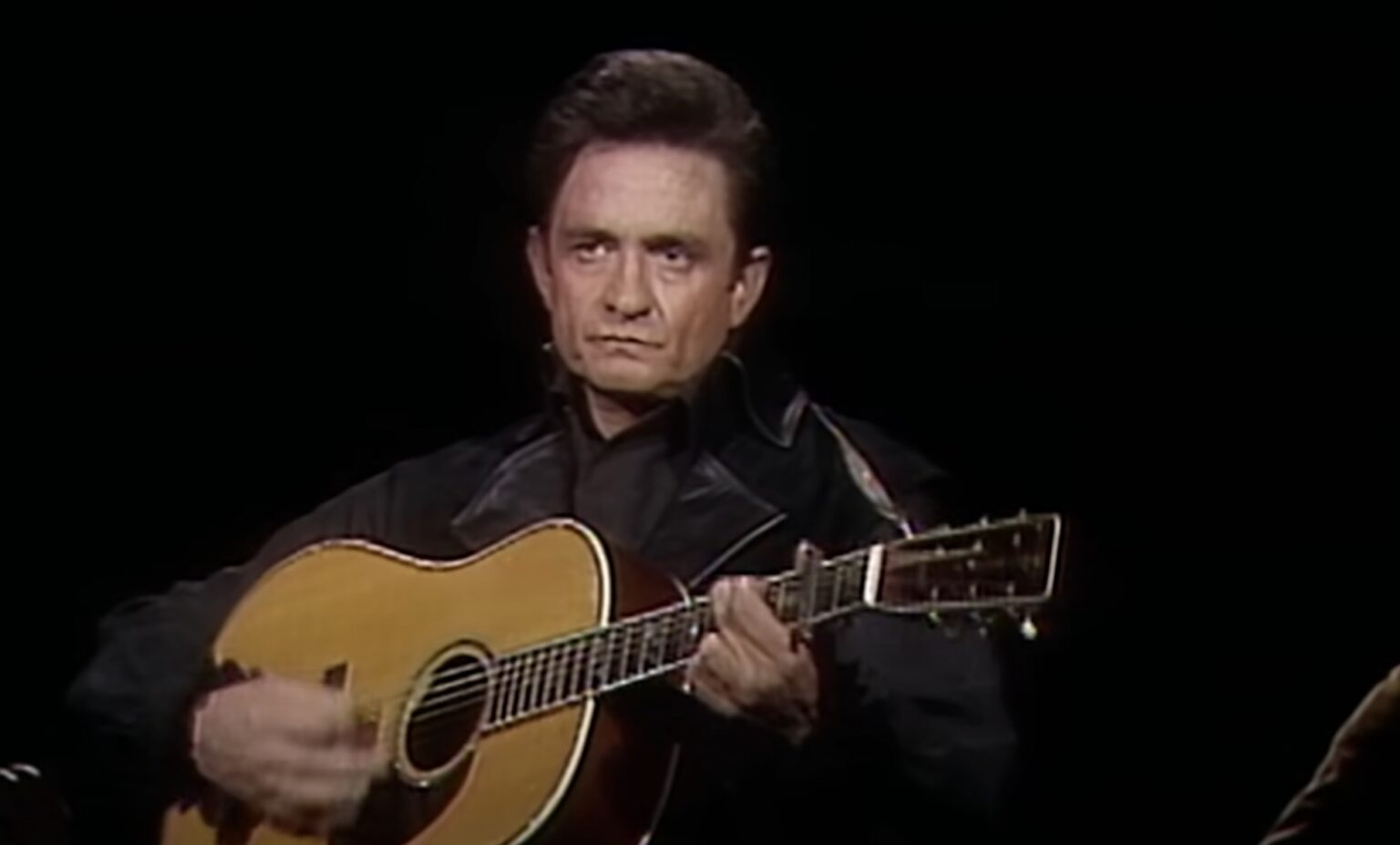The Life & Music: Unraveling The Johnny Cash Legend Today!
Ever wondered what makes a legend truly legendary? It's more than just hit records and sold-out concerts; it's about the enduring impact on culture and the ability to resonate with generations, and Johnny Cash embodies this definition perfectly. His story is one of raw talent, profound struggle, and unwavering authenticity, making him a true icon of American music.
Delving into the life of Johnny Cash reveals a complex tapestry woven with threads of gospel, country, and rockabilly, all colored by the stark realities of the American experience. Born J.R. Cash on February 26, 1932, in Kingsland, Arkansas, his early life was steeped in the hardships of rural poverty. As the fourth of seven children born to Ray and Carrie Rivers Cash, he witnessed firsthand the struggles of a farming family during the Great Depression. The family later relocated to Dyess, Arkansas, as part of President Roosevelt's New Deal program, an experience that profoundly shaped his understanding of social injustice and fueled his later advocacy for the marginalized.
| Category | Information |
| Full Name | J.R. Cash (later known as John R. Cash) |
| Birth Date | February 26, 1932 |
| Birth Place | Kingsland, Arkansas, USA |
| Death Date | September 12, 2003 |
| Death Place | Nashville, Tennessee, USA |
| Parents | Ray Cash (father), Carrie Rivers Cash (mother) |
| Siblings | Roy Cash, Margaret Cash, Louise Cash, Jack Cash (deceased in childhood), Reba Cash Hancock, Joanne Cash Yates |
| Marriages | Vivian Liberto (m. 1954, div. 1966), June Carter (m. 1968, d. 2003) |
| Children | Rosanne Cash, Kathy Cash, Cindy Cash, Tara Cash, John Carter Cash |
| Occupation | Singer, Songwriter, Actor, Author |
| Genres | Country, Rockabilly, Gospel, Folk, Blues |
| Instruments | Vocals, Guitar |
| Years Active | 1954-2003 |
| Labels | Sun Records, Columbia Records, American Recordings |
| Awards | Multiple Grammy Awards, Country Music Association Awards, Johnny Cash received numerous awards and honors throughout his career, solidifying his legacy as a music icon. |
| Associated Acts | The Tennessee Three (his backing band), The Carter Family (through his marriage to June Carter) |
| Website | johnnycash.com |
A defining moment in Cash's childhood was the tragic death of his older brother, Jack, in a sawmill accident. This loss left an indelible mark on his psyche, fostering a deep sense of empathy and a lifelong preoccupation with mortality. The event also seemed to solidify his connection to gospel music, a constant throughout his life, offering solace and a framework for understanding suffering. The echoes of loss and faith would later resonate powerfully in his songwriting, giving his music a depth that transcended mere entertainment.
- Viralkand See Whats Trending Now Traffic Analysis
- New Megan Fox Erome Pics Videos You Wont Believe It
His journey into music began during his air force service in the early 1950s, where he purchased his first guitar and began writing songs. Stationed in Landsberg, West Germany, he formed his first band, the "Landsberg Barbarians." Upon his return to the United States, he settled in Memphis, Tennessee, and began knocking on doors, determined to make a name for himself in the burgeoning music scene. This ambition led him to Sun Records, the legendary label owned by Sam Phillips, where he joined the ranks of Elvis Presley, Jerry Lee Lewis, and Carl Perkins. It was at Sun that Johnny Cash's distinctive sound began to crystallize.
The Sun Records era produced some of Cash's most enduring hits, including "I Walk the Line," "Folsom Prison Blues," and "Cry! Cry! Cry!" These songs established his signature "boom-chicka-boom" rhythm, a minimalist but infectious sound driven by Luther Perkins's distinctive guitar style. But more than just the rhythm, it was Cash's deep baritone voice and his storytelling ability that captivated audiences. He sang about love, loss, redemption, and the struggles of everyday people, themes that resonated deeply with listeners across social and economic divides.
In 1957, Cash made the move to Columbia Records, a decision that gave him greater creative freedom and financial security. This transition marked a period of tremendous artistic growth, allowing him to explore a wider range of musical styles and themes. It was during this time that he began to delve into concept albums, such as "Ride This Train," which chronicled the lives of railroad workers, and "Bitter Tears: Ballads of the American Indian," a powerful statement of solidarity with Native Americans. These albums showcased Cash's growing social consciousness and his willingness to use his platform to address controversial issues.
The 1960s were a tumultuous time for Cash, marked by both professional triumphs and personal struggles. While he continued to release hit records and tour extensively, he also battled addiction to amphetamines and barbiturates. This struggle led to erratic behavior and strained relationships, threatening to derail his career and his life. However, it was during this period of darkness that he found an unlikely source of salvation: June Carter, of the legendary Carter Family.
June Carter became more than just a love interest; she was Cash's muse, his confidante, and his unwavering support system. Their love story, immortalized in song and film, is one of the most iconic in country music history. June helped Cash confront his demons and find his way back to sobriety. Their marriage in 1968 marked a turning point in his life, ushering in a period of renewed creativity and spiritual growth. Together, they became a formidable force in the music industry, captivating audiences with their duets and their undeniable chemistry.
The late 1960s and early 1970s saw Cash reach the peak of his popularity, fueled in part by his groundbreaking television show, "The Johnny Cash Show." Airing on ABC from 1969 to 1971, the show provided a platform for a diverse range of artists, from country legends like Merle Haggard and Loretta Lynn to rock icons like Bob Dylan and Neil Young. Cash's willingness to showcase artists from different genres challenged the boundaries of country music and broadened his appeal to a wider audience. The show also reflected his commitment to social justice, featuring guests like Buffy Sainte-Marie, who used the platform to speak out about Native American issues.
One of the defining moments of Cash's career occurred in 1968, when he performed two concerts at Folsom Prison in California. These performances, recorded and released as the album "At Folsom Prison," became a massive commercial and critical success, revitalizing his career and solidifying his image as the "Man in Black." The album captured the raw energy and emotional intensity of Cash's performances, as he sang songs of redemption and rebellion to an audience of incarcerated men. The Folsom Prison concerts cemented his reputation as a champion of the underdog, a voice for the voiceless.
The "Man in Black" persona was more than just a fashion statement; it was a symbol of Cash's solidarity with the marginalized and the oppressed. He famously explained that he wore black "for the poor and beaten down, livin' in the hopeless, hungry side of town," and "for the prisoner who has long paid for his crime, but is there because he's a victim of the times." This commitment to social justice was evident not only in his wardrobe but also in his music and his activism. He spoke out against war, poverty, and racial discrimination, using his platform to advocate for a more just and equitable society.
While the 1980s were a relatively quiet period for Cash in terms of commercial success, he remained a vital and influential figure in the music industry. He continued to tour and record, and he also made appearances in films and television shows, showcasing his versatility as an entertainer. In the late 1980s, he joined forces with fellow country legends Willie Nelson, Kris Kristofferson, and Waylon Jennings to form the supergroup The Highwaymen. The group released three successful albums and toured extensively, further solidifying Cash's status as a country music icon.
The final chapter of Johnny Cash's career was perhaps his most unexpected and triumphant. In the early 1990s, he signed with American Recordings, a label known for its alternative rock artists. Teaming up with producer Rick Rubin, Cash embarked on a series of albums that stripped away the artifice of his earlier recordings, revealing the raw emotion and spiritual depth of his music. The "American Recordings" series, beginning in 1994, introduced Cash to a new generation of fans and earned him critical acclaim, including a Grammy Award for Best Country Album for "Unchained" in 1997.
The "American Recordings" albums featured Cash performing stripped-down versions of his classic songs, as well as covers of songs by artists ranging from Nine Inch Nails to U2. These albums showcased the power of his voice and his ability to connect with listeners on a deeply personal level. They also demonstrated his willingness to embrace new musical styles and to challenge the expectations of his audience. The "American Recordings" series revitalized his career and cemented his legacy as one of the most innovative and influential artists of all time.
The loss of June Carter Cash in May 2003 was a devastating blow to Johnny Cash. The two had been inseparable for over three decades, and her death left a void in his life that could never be filled. Despite his grief, Cash continued to record and perform, driven by his love of music and his desire to connect with his fans. He passed away just four months after June, on September 12, 2003, leaving behind a legacy that continues to inspire and resonate with audiences around the world.
Johnny Cash's influence extends far beyond the realm of country music. His music has resonated with artists from diverse genres, including rock, folk, and hip-hop. His willingness to tackle social issues and his unwavering authenticity have made him a cultural icon, admired by people from all walks of life. His story is a testament to the power of music to transcend boundaries and to connect people across generations. Johnny Cash remains the "Man in Black," but more importantly, he remains a symbol of hope, resilience, and the enduring power of the human spirit.
His impact on music is undeniable. The fusion of country, rockabilly, and folk elements created a sonic landscape that appealed to a broad audience. This versatility is a testament to Cashs ability to transcend traditional genre boundaries, a characteristic that has had a lasting impact on subsequent generations of musicians.
One cannot discuss Johnny Cash without acknowledging his distinctive sound. It was a sound born from the soil of Arkansas, seasoned by the struggles of the working class, and delivered with a voice that could both soothe and command. That unique sound, coupled with his raw honesty and unwavering commitment to social justice, is what made Johnny Cash a true legend.
- Stream Movies Online In Hd Watch Genretheme More
- Breaking Ari Melber Msnbc Whats Really Happening Now
The Legend of Johnny Cash An Untold Story

The Man in Black Unraveling the Story of Johnny Cash State of the Union

The Man in Black Unraveling the Story of Johnny Cash State of the Union